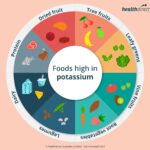Popcorn, often praised for its substantial dietary fiber content and naturally low calorie count, is perceived by many as a guilt-free snack, even in large quantities at the movie theater. But is this perception accurate? Let’s delve deeper into the nutritional profile of popcorn to understand whether it truly qualifies as a healthy food choice.
When air-popped and minimally seasoned, popcorn stands out as a remarkably healthy snack. Its classification as a whole grain is key, as high-fiber whole grains are associated with a decreased risk of heart disease, diabetes, certain types of cancer, and various other health issues. Federal dietary guidelines advocate that half of our grain consumption should consist of whole grains, and popcorn impressively delivers more fiber per serving than whole-wheat bread.
“When prepared well, popcorn actually is a pretty good snack,” notes Maya Vadiveloo, an assistant professor in the department of nutrition and food sciences at the University of Rhode Island. “It’s stable. It’s inexpensive. It’s fairly tasty. For people who might be struggling to eat adequate fruits or vegetables or other whole grains, it’s a low-risk snack to start.” However, it’s crucial to recognize that “Popcorn at the movies is very different than popcorn made at home.”
The Downside of Movie Theater Popcorn: Calories and Sodium
A large tub of movie theater popcorn can pack a staggering 1,090 calories and 2,650 milligrams of sodium. “Even a small movie theater popcorn has significant calories and is very high in salt,” Vadiveloo cautions. “Sodium is one of the leading risk factors for hypertension and stroke in general, so it’s something we do care about from a perspective of heart disease.” The high calorie count often stems from added butter and oils.
Healthy Oils vs. Unhealthy Additives
While some theater chains use canola oil for popping, which can be a healthier choice, the quantity and other additions remain a concern. Vadiveloo suggests that popcorn prepared with measured amounts of heart-healthy oils like canola or olive oil can still be part of a healthy diet. The key is controlling the preparation process from the start.
The same principle applies to popcorn coated in sugar, such as caramel corn. The added sugar significantly increases the calorie count and diminishes the health benefits.
Air-Popped Popcorn: The Healthier Alternative
“Air-popped would be a good way to prepare popcorn because it gives you some control over the seasonings that you add afterward – how much salt, or how much oil or butter,” Vadiveloo advises. Preparing popcorn at home allows for better control over ingredients, ensuring a healthier snack.
Microwave Popcorn: Addressing Past Concerns
Microwave popcorn once faced scrutiny due to certain chemicals used in its production, but many of these concerns have been addressed in recent years with the removal of harmful substances. One chemical of concern was diacetyl, linked to a condition known as popcorn lung.
The Benefits of Popcorn: Fiber and Antioxidants
Beyond its fiber content, popcorn is also a valuable source of polyphenols, which are antioxidants associated with improved blood circulation and digestive health. These antioxidants may also play a role in reducing the risk of certain cancers.
Popcorn and Weight Management
Another notable health benefit of popcorn is its high satiety. The combination of high fiber content, low calorie count, and low energy density contributes to its effectiveness in weight management. Studies have shown that popcorn can make people feel fuller than an equivalent calorie amount of potato chips.
“I could give you 200 calories of a milkshake, and that might be 5 or 6 ounces,” Vadiveloo explains. “Your body isn’t going to recognize you’ve had 200 calories and feel satisfied. But if you eat 200 calories of fruits and vegetables, which are high in fiber and water, you’re going to eat quite a large portion size to get to 200 calories. The same goes for popcorn.” The larger portion size for the same calorie count leads to increased feelings of fullness.
Conclusion: Popcorn as Part of a Healthy Diet
In conclusion, popcorn can indeed be a healthy food choice when prepared correctly. Opting for air-popped versions with minimal seasonings, and avoiding excessive amounts of unhealthy oils, butter, sugar and salt will help maximize the health benefits. Popcorn’s fiber and antioxidant content can contribute to overall well-being, and its satiating properties can aid in weight management. Be mindful of portion sizes and preparation methods to enjoy popcorn as a nutritious and enjoyable snack.
